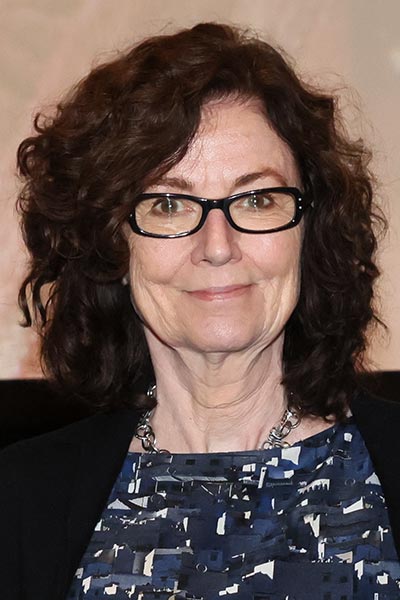Pezcoller Foundation-AACR award recipient details work on telomeres
//
Estimated Read Time:

In recognition of her work with human and mouse telomeres, Titia de Lange, PhD, FAACR, received the 2024 Pezcoller Foundation-AACR International Award for Extraordinary Achievement in Cancer Research on Sunday, April 7, at the American Association for Cancer Research Annual Meeting 2024 in San Diego.
Her award lecture, Telomeres and Cancer: Tumor Suppression and Genome Instability, is available on demand for registered Annual Meeting attendees through July 10, 2024, on the virtual meeting platform.
“This is a great honor, of course, and it’s humbling to be here,” de Lange said. “And it’s a great pleasure to have this opportunity to talk to you about our work on telomeres, which I will place in the context of cancer.”
De Lange, the Leon Hess Professor, head of the Laboratory of Cell Biology and Genetics, and director of the Anderson Center for Cancer Research at the Rockefeller University, was recognized for her groundbreaking discovery of molecular mechanisms by which telomeres protect chromosome ends; for the identification of the shelterin protein complex; and for demonstrating how loss of telomere protection results in aberrant genomic integrity and tumorigenesis. De Lange’s research has proven to be invaluable in the field of telomere research and has led to greater understanding of cancer development as well as genome maintenance.
Among the group’s notable revelations is the discovery of a protein complex called shelterin, which binds to telomeres and forms a telomere loop (T-loop). Shelterin protects telomeres from DNA damage response and regulates telomere length and maintenance.
De Lange’s group expertly demonstrated that shelterin prevents the type of instability that can disrupt normal cellular growth and promote cancer formation by protecting chromosomes’ ends from DNA damage responses.
Her lab has also studied the impact telomere shortening has on cancer. De Lange’s findings have shown that while telomere shortening contributes to tumor suppression, it also plays a role in cancer development and progression.
She discussed the potential correlation between telomere length and cancer risk.
“The idea is that in normal situations, you’re born with a certain length of telomeres that is set up so that the Hayflick limit kicks in at the right time, leading to a low cancer risk,” de Lange said.
“But the prediction of this model is if you’re born with very long telomeres, the Hayflick limit will be delayed, there will be many more divisions needed to shorten the telomeres to a point where a few protected telomeres will kill off a cancer clone,” she said.
Cells that continue to divide allow for an increased risk of the accumulation of additional mutations, which increases the risk of cancer.
De Lange’s findings and research on telomeres have unveiled key insights into how telomeres function and how they are related to cancer. Understanding the role of telomeres and cancer can help pave the way for improved cancer prevention and therapies. Established in 1997, the Pezcoller Foundation-AACR International Award for Extraordinary Achievement in Cancer Research honors individuals who have made a profound contribution to cancer research, which has left a lasting impact on the cancer field. It is supported by the Pezcoller Foundation and is presented to a scientist of international renown who has made a scientific discovery in basic or translational cancer research.




